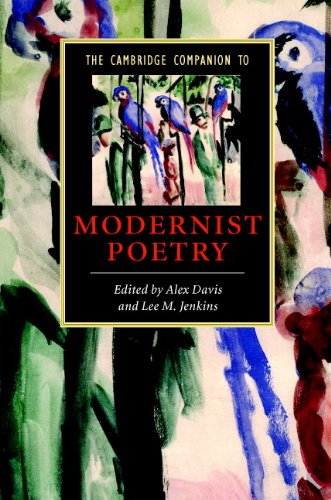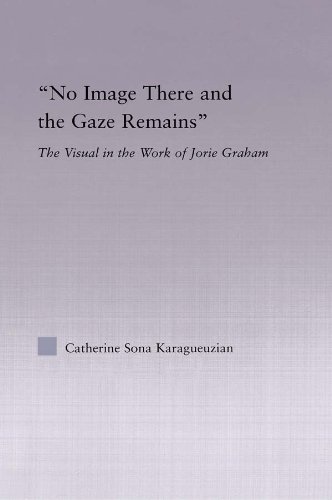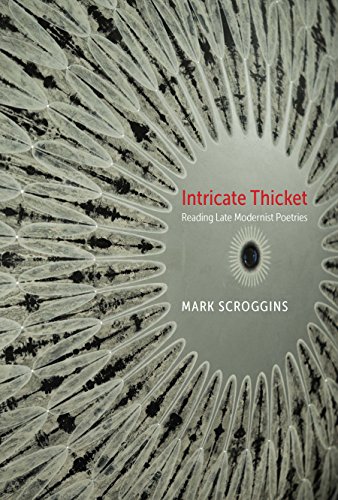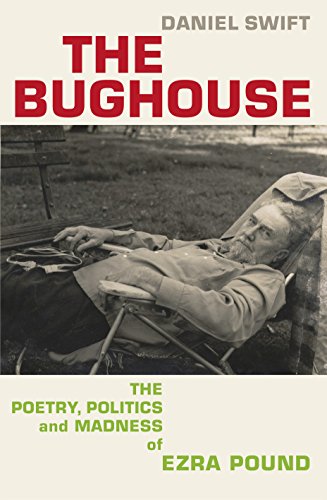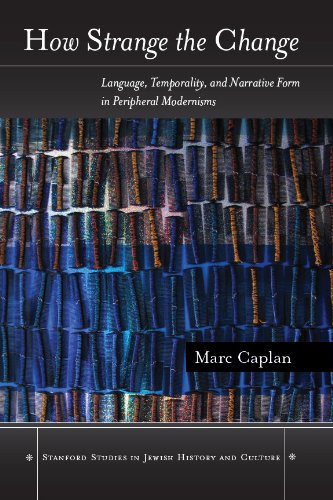
By Marc Caplan
Read or Download How Strange the Change: Language, Temporality, and Narrative Form in Peripheral Modernisms (Stanford Studies in Jewish History and C) PDF
Similar literary modernism criticism books
New PDF release: The Cambridge Companion to Modernist Poetry (Cambridge
This 2007 better half deals the main accomplished assessment to be had of modernist poetry, its types, its significant authors and its contexts. the 1st half explores the old and cultural contexts and sexual politics of literary modernism and the avant garde. The chapters within the moment half be aware of person authors and activities, whereas the concluding half bargains a finished evaluation of the early reception and next canonisation of modernist poetry.
First released in 2006. Routledge is an imprint of Taylor & Francis, an informa company.
Download PDF by Mark Scroggins: Intricate Thicket: Reading Late Modernist Poetries (Modern &
In difficult Thicket: studying past due Modernist Poetries, Mark Scroggins writes with wit and sprint a few interesting diversity of key 20th- and twenty-first-century poets and writers. In nineteen vigorous and obtainable essays, he persuasively argues that the techniques of modernist verse weren't changed by way of postmodernism, yet fairly these thoughts proceed to infuse modern writing and poetry with highbrow and aesthetic richness.
Read e-book online The Bughouse: The poetry, politics and madness of Ezra Pound PDF
In 1945, the yankee poet Ezra Pound used to be because of stand trial for treason for his declares in Fascist Italy through the moment global battle. sooner than the trial may ensue, in spite of the fact that, he used to be suggested insane. Escaping a potential demise sentence, he was once despatched to St Elizabeths health facility close to Washington, DC, the place he was once held for over a decade.
- Modernism and the Ideology of History: Literature, Politics, and the Past
- The Lyrical in Epic Time: Modern Chinese Intellectuals and Artists Through the 1949 Crisis
- I do I undo I redo: The Textual Genesis of Modernist Selves
- Ethics and Aesthetics in European Modernist Literature: From the Sublime to the Uncanny
- A Companion to Modernist Poetry (Blackwell Companions to Literature and Culture)
Additional info for How Strange the Change: Language, Temporality, and Narrative Form in Peripheral Modernisms (Stanford Studies in Jewish History and C)
Sample text
How Strange the Change: Language, Temporality, and Narrative Form in Peripheral Modernisms (Stanford Studies in Jewish History and C) by Marc Caplan
by John
4.4
